Feminist talk
Stories that need to be heard
Tonight, as I was thinking through this blog, my three-year-old offered to help. “It's not easy,” I warned her. “You see, there was a man who hurt a woman. He hurt her lots, and told her that if she didn't keep quiet, that he'd hurt her again. But she didn't keep quiet, and she told people her story.”
Feminist talk
“A Facebook status can get you arrested faster than killing someone now”
In India, the largest democracy on Earth, 21-year old girl Shaheen Dhada was arrested for posting a status update on Facebook questioning the complete shutdown of cities for Bal Thackeray’s (rightwing leader notorious for inciting religious hatred and violence) funeral on Sunday, 18th November. Her friend Renu Srinivas was also arrested for “liking” the update which reportedly read: "People like…
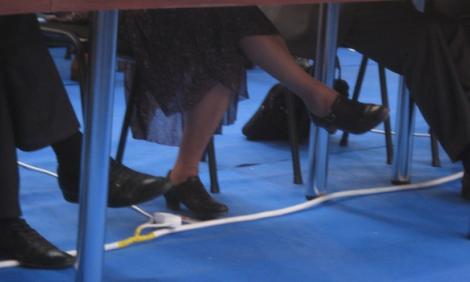
Feminist talk
IGF 2012: Day two in room four
What I most value about the IGF is that thanks to its multi-stakeholder principle, it widens my perspective on pressing internet governance issues. However, all three sessions I attended on day two in room number four, while talking about human rights, failed to include women's right perspective. Women internet users are important stakeholder and it is evident that even after six years of…
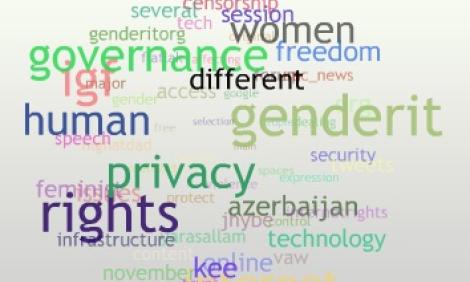
Feminist talk
Women's take on internet governance: A selection of tweets from IGF 2012
This is a selection of the tweets circulated during the Internet Governance Forum in Baku, Azerbaijan, from November 6-9 2012. They were selected following the criteria of its relevance in reflecting the discussions around women’s role in internet governance processes, as well as women’s and internet rights during the IGF.
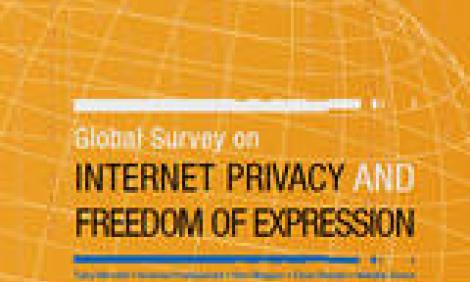
Publication
Global survey on internet privacy and freedom of expression
This publication seeks to identify the relationship between freedom of expression and internet privacy, assessing where they support or compete with each other in different circumstances. The book maps out the issues in the current regulatory landscape of internet privacy from the viewpoint of freedom of expression. It provides an overview of legal protection, self-regulatory guidelines,…
Feminist talk
Censorship walks, a feminist view of the Internet Governance Forum
A big hangar, with a constant voice asking people to wear headphones and talk to each other through the microphones, an internet network that does not allow participants to be online simultaneously, with an average of only one person out of three being able to access full online services and the other two struggling with their different devices to reach out, comment and communicate what is…
Feminist talk
Interview with Arzu Geybullayeva on the internet rights of women in Azerbaijan
Nighat Dad from "Digital Rights Foundation, Pakistan":http://www.digitalrightsfoundation.pk speaks to Arzu Geybullayeva, a regional analyst and a blogger from Azerbaijan. Arzu's areas of interest are regional politics, conflict resolution, and new social media. In their "feminist talk” Nighat asks Arzu about her impressions of the 7th…
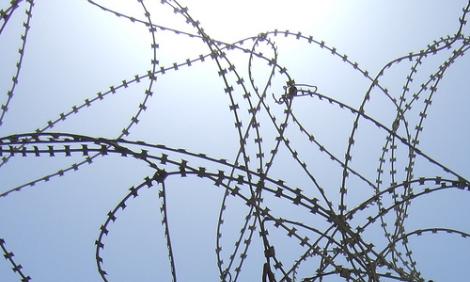
Crossing borders : cyberspace and national security
This edition of GenderIT.org explores the online safety of women human rights defenders from the perspective of national security and counter-terrorism. National security often encompasses a variety of security threats, including those in cyberspace. While national security measures are meant to protect the security of a nation and its citizen, in many contexts they serve as a pretext for…

Editorial
Let’s stop our fear of tech leading to misuse of security legislation
I was very happy when I was asked to be guest editor of this edition of GenderIT.org on women human rights defenders (WHRD) and national cyber security policies. This is an important and timely issue for WHRDs because the misuse of counter-terrorism legislation to quell dissent and further marginalise minority voices is on the rise.
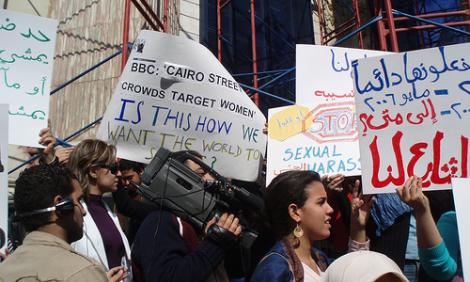
In depth
Egypt: Cyber-security as a priority and an integral part of human rights advocacy
GenderIT.org correspondent Mavic Cabrera-Balleza interviews Yara Sallam, Manager of the Women Human Rights Defenders Program at Nazra for Feminist Studies in Egypt, on the challenging reality for women human rights defenders, how they are affected by measures taken by the government in the name of “national security”, and strategies used to address threats to WHRD's cybersecurity.





